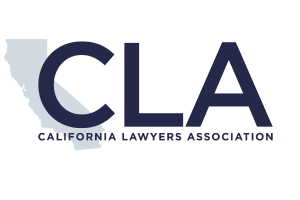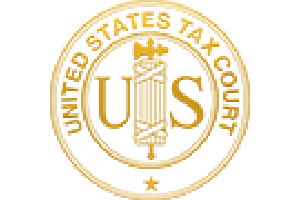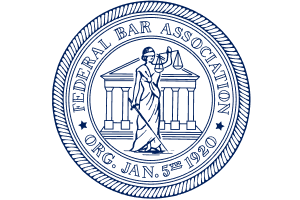Getting Results
IRS Trust Fund Penalty Interview Process
Trust Fund Interview IRS Form 4180: A Tax Lawyers Guide to Trust Fund Recovery Penalty Interviews
List of 4180 Interview Questions are listed here.
The IRS Form 4180, titled Report of Interview with Individual Relative to Trust Fund Recovery Penalty or Personal Liability for Excise Taxes, is a critical tool used by the Internal Revenue Service (IRS) to assess the Trust Fund Recovery Penalty (TFRP) against individuals deemed responsible for unpaid trust fund taxes. These taxes include federal income tax, Social Security, and Medicare withheld from employees’ wages, which employers are legally obligated to remit to the IRS. Failure to comply can lead to severe personal liability for those identified as “responsible persons” who willfully failed to collect or pay these taxes. Our trust fund tax lawyers provide detailed analysis of the Form 4180 Trust Fund interview process, the specific questions asked, guidance for preparation, and the legal implications of the responses.
Understanding the Trust Fund Recovery Penalty (TFRP) Interview
The TFRP, authorized under 26 U.S.C. § 6672 , is a penalty equal to 100% of the unpaid trust fund taxes, targeting individuals who:
- Were responsible for collecting, accounting for, or paying over trust fund taxes.
- Willfully failed to do so, either by disregarding a known legal duty or showing indifference to compliance.
The penalty is not dischargeable in tax bankruptcy and can lead to aggressive IRS collection actions, such as wage garnishment, bank levies, or federal tax liens. The Form 4180 interview is the IRS’s primary method to determine both responsibility and willfulness, making preparation critical to avoid personal liability.
The Form 4180 Trust Fund Interview Process
List of 4180 Interview Questions are listed here.
The IRS conducts Form 4180 interviews, typically led by a Revenue Officer, either in person or over the phone. The interview aims to identify responsible persons within a business, such as owners, officers, directors, shareholders, or even third-party payroll providers, who had control over financial decisions. The IRS does not provide the form in advance, relying on the element of surprise to elicit candid responses. However, reviewing a copy of Form 4180 beforehand is advisable to prepare accurate and defensible answers.
At the interview’s conclusion, the interviewee is asked to sign the form under penalty of perjury, affirming the accuracy of the responses. Signing without careful review can lock in statements that may later be used to justify a TFRP assessment. Therefore, tax attorney representation during the trust fund interview is highly recommended to ensure responses align with the interviewee’s best interests and to avoid unintentional admissions of tax liability.
Key Questions on IRS Form 4180 Trust Fund Interview
Form 4180 is structured to gather personal and business-related information, focusing on the interviewee’s role in financial decision-making. Below is a detailed breakdown of the key questions, their purpose, guidance for answering, and the legal implications of responses. The questions are grouped by section for clarity, with a table summarizing each question’s intent and potential risks.
Section I: Personal Information
These questions establish the interviewee’s identity and connection to the business.
| Question | Purpose | Guidance | Legal Implications |
|---|---|---|---|
| Name, SSN, Address, Phone Numbers | Identify the interviewee and establish contact information. | Provide accurate personal details. Errors can delay the process or raise suspicion. | Inaccurate information may lead to IRS scrutiny or summons for clarification. |
| Job Title or Relationship to Business | Determine the interviewee’s role (e.g., CEO, CFO, bookkeeper). | Clearly state your official title and role. Avoid exaggerating authority if your role was clerical. | A title suggesting authority (e.g., “President”) may imply responsibility unless clarified. |
Guidance: Be precise and truthful. If your role was limited (e.g., a clerical employee following orders), emphasize this to avoid being misclassified as a responsible person. Misrepresenting your role can lead to assumptions of greater authority, increasing liability risk.
Section II: Responsibilities in the Business
This section is the core of the interview, probing the interviewee’s involvement in financial and tax-related decisions. The IRS uses a checklist to assess whether the individual had the authority to act as a responsible person.
| Question | Purpose | Guidance | Legal Implications |
|---|---|---|---|
| Did you determine financial policy for the business? | Assess if you set budgets, prioritized payments, or controlled funds. | If you only followed directives, say so. Provide documentation (e.g., corporate bylaws) showing limited authority. | Answering “yes” suggests you had significant control, increasing TFRP risk. |
| Did you direct or authorize payment of bills? | Identify who decided which creditors were paid. | Specify if you paid bills under instruction or only certain types (e.g., utilities, not taxes). | Admitting to prioritizing other creditors over IRS payments may indicate willfulness. |
| Did you open or close bank accounts? | Determine control over banking operations. | Clarify if you acted on orders or had no independent authority. | Opening accounts suggests financial oversight, a key factor in responsibility. |
| Did you guarantee or co-sign loans? | Assess involvement in securing business financing. | If you co-signed as a formality, explain the context (e.g., required by a bank). | Co-signing may imply authority over financial decisions, supporting a TFRP assessment. |
| Did you sign or countersign checks? | Verify authority to disburse funds. | Distinguish between routine signing and discretionary authority. Provide check-signing logs if possible. | Check-signing authority is a strong indicator of responsibility. |
| Did you authorize or sign payroll checks? | Confirm involvement in payroll processes. | If you only signed checks prepared by others, clarify this. | Payroll check authorization links directly to trust fund tax obligations. |
| Did you authorize or make federal tax deposits? | Check if you handled tax payments. | If you made deposits under direction, emphasize lack of decision-making power. | Authorizing deposits suggests knowledge of tax obligations, critical for willfulness. |
| Did you prepare, review, sign, or transmit payroll tax returns? | Determine involvement in tax compliance. | If your role was clerical (e.g., data entry), state this explicitly. | Preparing or signing returns implies awareness of tax duties, increasing liability risk. |
| Did you hire or fire employees? | Assess broader managerial authority. | Hiring/firing may indicate general control, but clarify if unrelated to taxes. | Broad authority strengthens the case for responsibility. |
Guidance:
- Be Honest but Strategic: Truthfulness is essential, as lying can lead to perjury charges or increased scrutiny. However, avoid volunteering information beyond what is asked. For example, if you signed checks but had no discretion over which bills were paid, clarify this distinction.
- Document Your Role: Gather evidence (e.g., job descriptions, corporate resolutions, or emails) showing your duties were limited or directed by others. This can counter assumptions of responsibility.
- Avoid Guessing: If unsure, respond with “I don’t know” or “I don’t recall” rather than speculating, as guesses can be interpreted as admissions.
Legal Implications:
- Responsibility: Answering “yes” to multiple questions, especially those involving financial control, increases the likelihood of being deemed a responsible person. The IRS considers anyone with “authority and control over funds to direct their disbursement” as potentially liable, including officers, employees, or third parties.
- Willfulness: Admitting to knowledge of unpaid taxes while authorizing payments to other creditors (e.g., vendors) can establish willfulness, a key TFRP element. For example, paying a meat vendor instead of the IRS, as noted in some IRS scenarios, is a clear sign of willful failure.
Section III: Knowledge of Unpaid Taxes During the Trust Fund Interview
These questions probe when and how the interviewee became aware of the tax delinquency and their actions thereafter.
| Question | Purpose | Guidance | Legal Implications |
|---|---|---|---|
| When did you become aware of the unpaid taxes? | Establish the timeline of knowledge. | Be precise about dates and circumstances. If you learned late, provide context (e.g., after a superior informed you). | Knowledge of unpaid taxes while continuing business operations may indicate willfulness. |
| What did you do when you heard about it? | Assess actions taken to address the delinquency. | If you escalated the issue or attempted to pay, document these efforts. If you had no authority, state this. | Inaction or prioritizing other payments after awareness strengthens the willfulness case. |
| Did you hear discussions about unpaid taxes among officers or shareholders? | Identify who else knew of the issue. | Avoid implicating others unless necessary. Focus on your own lack of decision-making power. | Naming others may shift liability but can complicate the investigation. |
Guidance:
- Timeline Matters: The IRS uses the date of awareness to assess willfulness. If you became aware after the tax periods in question, emphasize this to limit liability.
- Mitigating Actions: If you took steps to address the delinquency (e.g., contacting the IRS or reallocating funds), highlight these efforts with supporting evidence.
- Avoid Broad Statements: Statements like “everyone knew” can expand the IRS’s investigation, potentially implicating you further.
Legal Implications:
- Willfulness Standard: Willfulness requires knowledge or reckless disregard of unpaid taxes. Paying other creditors after awareness, as noted in United States v. Easterday (9th Cir. 2008), can suffice for both civil and criminal liability.
- Criminal Risk: While rare, willful failure to pay trust fund taxes can lead to criminal charges under 26 U.S.C. § 7202 . Honest, limited responses reduce this risk.
Section IV: Third-Party Payroll Providers
If the business used a payroll service provider (PSP) or professional employer organization (PEO), additional questions focus on their role.
| Question | Purpose | Guidance | Legal Implications |
|---|---|---|---|
| Did you use a third-party payroll provider? | Identify if a PSP or PEO handled tax payments. | Provide the provider’s name and contract details. Clarify your oversight role, if any. | A PSP’s failure may shift liability to their responsible parties, but you may still be liable if you controlled funds. |
| What did the provider know about unpaid taxes? | Assess the provider’s awareness and actions. | If the provider was responsible, provide evidence (e.g., communications). | Your knowledge of the provider’s failure while continuing to use them may indicate willfulness. |
Guidance:
- Document Agreements: Provide contracts or emails showing the PSP’s responsibilities. If you relied on their expertise, emphasize this.
- Limit Personal Involvement: If you had no role in overseeing the PSP, clarify this to avoid being seen as responsible.
Legal Implications:
- Shared Liability: The IRS can assess the TFRP against both the business’s responsible persons and the PSP’s responsible parties. Your role in selecting or monitoring the PSP can affect liability.
- Due Diligence: Failure to ensure the PSP paid taxes may be viewed as reckless disregard, supporting a willfulness finding.
Legal Strategies for Navigating the Trust Fund Interview
- Engage Tax Counsel: A tax attorney or enrolled agent experienced in TFRP cases can:
- Review Form 4180 questions in advance.
- Attend the interview to clarify questions and prevent overreach.
- Challenge inaccurate assumptions by the Revenue Officer.
- Prepare a defense for appeals if the TFRP is proposed.
- Gather Documentation: Collect:
- Corporate bylaws or operating agreements limiting your authority.
- Bank signature cards showing who controlled accounts.
- Emails or memos proving you followed orders or lacked decision-making power.
- Records of attempts to pay taxes or address delinquencies.
- Avoid Signing Prematurely: Review the completed Form 4180 carefully before signing. Request corrections if responses are misrecorded. If pressured, consult your attorney before signing.
- Prepare for Appeals: If the IRS proposes a TFRP via Letter 1153, you have 60 days to file a written appeal with the IRS Appeals Office. Provide evidence rebutting responsibility or willfulness, such as:
- Proof you lacked authority (e.g., job description).
- Evidence of coercion or intimidation by superiors.
- Documentation of financial constraints preventing tax payments.
- Explore Resolution Options:
- Pay the Debt: Paying the business’s tax debt before the interview can cancel the TFRP process.
- Installment Agreement: If assessed, negotiate a payment plan to avoid enforced collections.
- Offer in Compromise: Settle the penalty for less if you demonstrate financial hardship.
- Uncollectibility: Prove inability to pay via Form 433-A, though this is challenging.
Common Pitfalls and How to Avoid Them
| Pitfall | Consequence | Avoidance Strategy |
|---|---|---|
| Answering without preparation | Inaccurate or overly broad responses may imply responsibility. | Review Form 4180 and consult a tax attorney beforehand. |
| Signing Form 4180 without review | Locks in statements that may support TFRP assessment. | Request time to review and correct errors before signing. |
| Admitting to paying other creditors | Suggests willfulness if taxes were unpaid. | Clarify if payments were directed by others or unavoidable. |
| Failing to appeal Letter 1153 | Waives the right to contest the TFRP before collections begin. | File a timely appeal with supporting evidence. |
Sample Case Study: A Cautionary Tale
Consider a common scenario: Jane, a CFO of a large restaurant and bar, signed payroll checks and authorized vendor payments under the owner’s direction. During a Form 4180 interview for trust fund taxes, she admitted to knowing taxes were unpaid but continued paying vendors to keep the business operational. Lacking proper tax lawyer to represent her and under the direction of the restaurant owner, she signed the form without review. The IRS assessed a $250,000 TFRP against her, citing her check-signing authority and knowledge of the delinquency. Had Jane consulted a tax attorney, she could have:
- Clarified her limited authority under the owner’s control.
- Provided emails showing her protests against non-payment.
- Appealed the assessment with evidence of her subordinate role.
This case underscores the need for preparation and representation to avoid personal liability.
The IRS Form 4180 trust fund interview is a high-stakes process that can result in significant personal liability for unpaid trust fund taxes. By understanding the questions, preparing thoroughly, and engaging experienced tax counsel, individuals can navigate the interview strategically to minimize TFRP risks. The questions focus on establishing responsibility and willfulness, making precise, documented responses critical. Our trust fund tax lawyers play a vital role in guiding clients through this process, from pre-interview preparation to appeals and resolution strategies.
For businesses and individuals facing a Form 4180 trust fund interview, proactive steps—documenting roles, and seeking tax attorney’s advice—can prevent the severe consequences of the TFRP.
Contact Us: If you or your business are facing a IRS Trust Fund interview or TFRP investigation, contact our tax attorneys for a consultation (310) 788 9820. Our experienced tax attorneys can help you prepare, defend, and resolve your tax issues effectively.





















